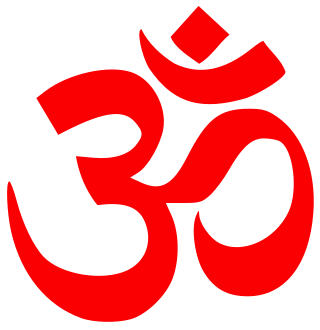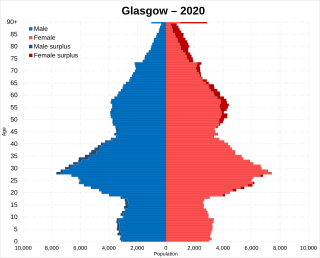
Hinduism has been spread in Russia primarily due to the work of scholars from the religious organization International Society for Krishna Consciousness (ISKCON) and by itinerant Swamis from India and small communities of Indian immigrants. While ISKCON appear to have a relatively strong following in Russia, the other organizations in the list have a marginal presence in this country. There is an active Tantra Sangha operating in Russia. According to the 2012 official census, there are 140,010 Hindus in Russia, which accounts for 0.1% population of Russia.

Hinduism is the third largest religion in Australia consisting of more than 684,002 followers, making up 2.7% of the population as of the 2021 census. Hinduism is the fastest growing religion in Australia mostly through immigration. Hinduism is also one of the most youthful religions in Australia, with 34% and 66% of Hindus being under the age of 14 and 34 respectively.

Hinduism is the Fourth-largest religion in Myanmar, being practised by 1.7% of the population of Myanmar. Hinduism is practised by about 890,000 people in Myanmar, and has been influenced by elements of Buddhism, with many Hindu temples in Myanmar housing statues of the Buddha. There are also a large population of Hindus in which the Myanmar Tamils and minority Bengali Hindus having the biggest population share.

The Welsh are an ethnic group native to Wales. Wales is one of the four countries of the United Kingdom. The majority of people living in Wales are British citizens.

The demography of Scotland includes all aspects of population, past and present, in the area that is now Scotland. Scotland had a population of 5,463,300 in 2019. The population growth rate in 2011 was estimated as 0.6% per annum according to the 2011 GROS Annual Review.

Hinduism is the third largest religious group in the United Kingdom, after Christianity and Islam; the religion is followed by around 1.7% of the total population of the nation. Hindus had a presence in the United Kingdom since the early 19th century, as at the time India was part of the British Empire. Many Indians in the British Indian Army settled in the United Kingdom of Great Britain and Northern Ireland. According to 2021 United Kingdom census, 1,032,775 residents (1.7%) identified themselves as Hindus.

Hinduism is the third-largest religion in Canada, which is followed by approximately 2.3% of the nation's total population. As of 2021, there are over 828,000 Canadians of the Hindu faith.

Islam in Scotland includes all aspects of the Islamic faith in Scotland. The first Muslim known to have been in Scotland was a medical student who studied at the University of Edinburgh from 1858 to 1859. The production of goods and Glasgow's busy port meant that many lascars were employed there. Most Muslims in Scotland are members of families that immigrated in the later decades of the 20th century. At the 2011 census, Muslims comprised 1.4 per cent of Scotland's population (76,737). In the 2022 census, this grew to 2.2% of the population (119,872).

As of the 2022 census, None was the largest category of belief in Scotland, chosen by 51.1% of the Scottish population identifying when asked: "What religion, religious denomination or body do you belong to?" This represented an increase from the 2011 figure of 36.7%. 38.8% identified as Christian with most of them declaring affiliation with the Church of Scotland and the Catholic Church. The only other religious persuasions with more than 1% affiliation were 'Other Christian' and Muslim at 5.1% and 2.2% of the total population, respectively.

Hinduism is a minority faith in Denmark. There are 40,000 (0.5%) Hindus in Denmark as of 2020.

Hinduism is a minority religion in Sweden practised by 0.13% of the population or 13,000 people out of a population of 10.5 million. Hinduism is practised mainly by persons of Indian origin and non-resident Indians together. A majority of them are Tamils, Punjabis, Bengalis, Gujaratis, Telugu's and Kannadigas.

Hinduism in England is the third largest religion in the country, with over 1,020,533 followers as of the 2021 Census. This represents over 1.5% of the English population, up from 1.1% the previous decade. Hindus are predominantly in the cities of London and Leicester, where they make up greater proportions of the population. England has a number of Hindu temples, including the Hindu temple at Neasden which is a large Hindu temple in Europe. In 2007, the largest Hindu Mandir in the North of England, the Bradford Lakshmi Narayan Hindu Temple opened in Bradford, West Yorkshire.

Sikhism in Scotland includes all aspects of Sikh life and Sikhism in Scotland. Sikhs have been present in Scotland for over a century, with the first documented Sikh, Maharaja Daleep Singh, arriving in Perthshire in 1855. The next wave of migration was in early-to-mid 1920s when prominent Sikhs of the Bhat/Bhatra community established themselves in Glasgow and Edinburgh. However, the bulk of Sikhs in Scotland come from families who immigrated during the late 20th century. In Scotland, Sikhs represented about 0.2% of the population (10,988) in the 2022 census.

Buddhism in Scotland is a relatively recent phenomenon. In Scotland, Buddhists represented about 0.3% of the population (15,501) in the 2022 census.

Hinduism is a minority religion in Wales constituting 0.4% of its population. Under half of Welsh Hindus settled there in the second half of the 20th century.

Hinduism is one of the fastest growing religions in Northern Ireland with over 4,000 Hindus in the country, making up 0.22% of the population. There are currently 3 Mandirs in Belfast alone: Radha-Krishna Temple in Malone Road, Laxmi-Narayan Mandir in Clifton Street and Radha Madhava Mandir (ISKCON) in Upper Dunmurry Lane. There is also a Hare Krishna Centre on Inish Rath Island that was established in 1985.
Scottish Asian is a term defined within the 2011 Scottish census as including people of Bangladeshi, Chinese, Indian, Pakistani or other Asian ancestry resident in Scotland. Their parents or grandparents are normally Asian immigrants. It can also refer to people who are of dual Scottish and Asian ancestry. It combines Asian ethnic background with Scottish national identity.

Hinduism is a minority religion in Ireland, followed by 0.7% of the country's population. It is also the second fastest-growing religions by percentage in Ireland. There are also a small number of recognised temples in the country.

Glasgow is the most populous city in Scotland and the fourth most populous city in the United Kingdom.

White: Gypsy or Irish Traveller is an ethnicity classification used in the 2011 United Kingdom Census. In the 2011 census, the White: Gypsy or Irish Traveller population was 63,193 or about 0.1 per cent of the total population of the country. The ethnicity category may encompass populace from the distinct ethnic groups of Romanichal Travellers or Irish Travellers, and their respective related subgroupings, who identify as, or are perceived to be, white people in the United Kingdom.

















